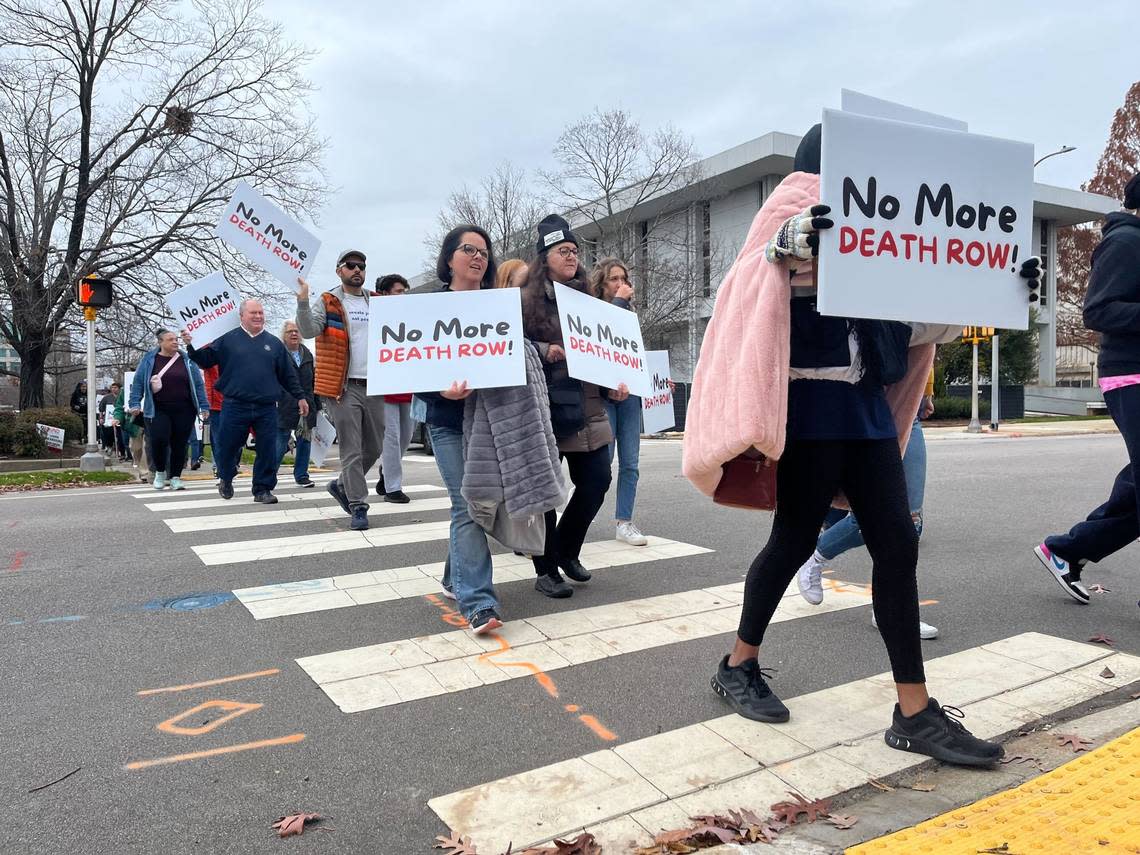During a time of major celebration for several world religions, nearly 300 faith leaders from around North Carolina are calling on Gov. Roy Cooper to end the death penalty.
On Thursday, the North Carolina Council of Churches and the North Carolina Coalition for Alternatives to the Death Penalty released a letter asking for Cooper to commute all current death row inmate’s sentences to life imprisonment before his term ends in 2024.
On Friday, the leaders planned to deliver the letter to Cooper, calling the death penalty “racist and error-prone.”
“The North Carolina death penalty is rife with racism and wealth bias and poses a threat to innocent people,” a statement from the two organizations said.
The letter to the governor is part of a statewide ”No More Death Row” campaign that launched in December with a march and rally led by people who lost family members to homicide, the statement said.
While the state has not executed anyone since 2006, North Carolina currently has 137 people on death row — 135 men and two women — all of whom are housed at correctional facilities in Raleigh.
A HISTORY OF THE DEATH PENALTY IN NC
Like many states across the country, North Carolina has a complicated history with the death penalty.
Between the founding of North Carolina as a British colony in the early 1700s and 1910, the state did not regulate executions. Executions were often public affairs and were overseen by local governments.
In 1910, the state assumed responsibility for executing criminals. At this time, the state began using the electric chair and eventually moved to executing people through asphyxiation in gas chambers.
Today, lethal injection remains the only method of execution permitted in North Carolina, after the General Assembly eliminated execution by lethal gas in 1998, according to the N.C. Department of Public Safety.
There was a brief pause in executions between 1972 and 1976 when the U.S. Supreme Court temporarily deemed capital punishment cruel and unusual and therefore a violation of the constitution.
However, this ruling was soon overturned and executions resumed in the late 1970s.
WHERE DOES THE DEATH PENALTY STAND IN NORTH CAROLINA?
While lawsuits and a decline in support have contributed to the halt in executions, North Carolina’s own death penalty guidelines have also prevented executions for almost 20 years.
According to North Carolina’s execution protocol, “Licensed Physicians, physician assistants, advanced degree nurses, registered nurses, and emergency medical technician-paramedics, who are licensed or certified by their respective licensing boards and organizations, shall be deemed qualified to participate in the execution procedure.”
But in the early 2000s, the American Medical Association publicly stated that participating in executions was unethical for physicians, and many other accredited medical institutions followed suit.
Samuel Flippen, who was 36 at the time, was the last person put to death in North Carolina. He was executed on Aug. 18, 2006 for the murder of his 2-year-old stepdaughter, according to the NC Department of Public Safety.
The North Carolina Coalition for Alternatives to the Death Penalty notes that people continue to be sentenced to death and that 10 capital trials remain scheduled for 2023.

